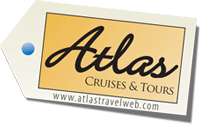Enhanced Disinfecting Protocols To Be Used by Airlines & Hotels
With the unprecedented surge in COVID-19 cases worldwide and shutdowns in numerous businesses that have resulted from it, businesses everywhere have begun to change disinfecting policies and practices to help try to counteract the spread of the virus. For most business travel in the short term and, hopefully, vacation travel in the long term, it is imperative that hotels and airlines begin to enhance disinfecting protocols and cleaning procedures in general given the circumstances.
Disinfecting Airlines with Electrostatic Sprayers
With the market’s main electrostatic sprayer created by EarthSafe Chemical Alternatives being tested and proven to be not only an effective disinfectant but also effective at coating areas for further effective cleaning, the product, called EvaClean, has been picked up by Southwest, United, and Delta to take proper steps towards halting the spread of the virus in travel. This new spray acts as a primer for all surfaces that can be the first line of defense before conventional cleaning follows up. This method has been designed to be a baseline defense for all cleaning, but also provides cleaning access to areas that conventional cleaning methods simply cannot reach. As a special note, this procedure is 100% EPA-registered and approved to be highly effective against many communicable diseases, including the infamous COVID-19 and other coronaviruses.
- Southwest Airlines
As showcased on Southwest Airlines’ Media Site in a video, the company had begun testing on new electrostatic sprayers that combine disinfectants and antimicrobial protectants in a spray that can tackle disinfecting a whole cabin in no time. The company’s tests proved to be so effective, it has moved to use this technology on all overnight stops in maintenance base hangars. It expects to more than 100 specialized units available soon for active planes, but will increase volume as flying numbers eventually reach pre-pandemic levels.
- United Airlines
With guidance from its on-site medical director, Pat Baylis, United has taken steps to increase cleanliness where possible aboard its flights. This includes incorporating the very same electrostatic sprayers mentioned above on all inbound international flights and mainline overnight aircraft at U.S. hubs right now, improved circulation systems, and reduced onboard contact with changes to food service. The electrostatic sprayers are planned to be used on every United departure starting in June, with every customer touch point and surface to be intentionally disinfected by the spray before every single flight. Like Southwest, United will also incorporate more cleaning measures to accompany the electrostatic sprayers.
- Delta
Using the same method, but with a slightly different process, Delta has begun “fogging” its aircraft cabins and deployed the method to its flights en masse. This started with some flights from Asia in February, but has been expanded to more flights, international and domestic, since then. Starting earlier in April, all domestic aircraft have had an overnight fogging procedure incorporated as well, followed by mandatory cleaning by airline staff to touch-up on contact points.
- Other Airlines
As a whole, most active airlines have taken it upon themselves to work towards improving health and cleaning standards wherever possible to accommodate both the reopening of the country and the lowering of COVID-19 transmissions worldwide. Alaska Airlines, American Airlines, Hawaiian Airlines, and JetBlue Airways find themselves on this list. With some small minor differences in policy, the fundamental agreement between most airlines toward nightly deep cleanings and between flight touch-ups seems universal. The fact is, each airline wants to do its part to be back up and working towards a status quo as close to pre-COVID-19 as possible.
- Airports
Even airports themselves have begun incorporating EarthSafe’s sprays in regular cleaning maintenance. Airports like the San Francisco International Airport, Las Vegas McCarran, and Hollywood Burbank have made it a point to clean walkways and touching points with this new technology. The Hong Kong airport is installing full body disinfecting booths that check temperatures prior to entering. In addition, it also only lets you enter without an elevated temperature. The booth applies a 40 second disinfection and sanitizing procedure.
Hotels
In the same boat as the rest of the industries dependent on travel for success, hotels have begun taking large steps in the right direction to improve sanitation of their hotels between and during stays of guests. For some, it is as simple as mandatory frequent deep cleanings with disinfectants proven to rid areas of any coronavirus, but others have taken it upon themselves to use similar electrostatic sprays to those used by the airlines. Some of these lodging companies have made it a point that these changes are not simply for show, but to truly make a change for good. Contact-free check-in and checkout, improved sanitation, and improved access to sanitation materials all seem to be constants with conventional hotel chains to improve upon established methods of preventing disease spread.
- Hilton Hotels
Having incorporated contactless check-in some time ago, this hotel giant is not only increasing intent to continue this trend, but has decided to involve electrostatic spray guns and ultraviolet light technology to improve overall cleanliness of hotels in the chain. A large focus of the movement is to make sure all areas frequented by guests will be thoroughly cleaned and coronavirus-proof in a way.
- Hyatt
A new program introduced by the company as part of its “Global Care & Cleanliness Commitment,” involves frequent cleanliness audits of disinfection and disease prevention as well as the addition of hygiene managers to every hotel in the chain by September. This manager is responsible for oversight of frequent thorough cleanings of each hotel, making sure staff has access to face masks, and providing ample sanitizer and soap for hotel employees and guests.
- Marriott Hotels
Marriott has decided to turn to the proven effectiveness of electrostatic sprayers for hotel rooms and public areas throughout their hotels. On a similar note, the company is also testing UV light technology for sanitizing guest keys going forward and, pending results, would like to use it on a wide scale.
- Airbnb
While obviously not conventional lodging, even the pseudo-house rental company has begun taking measures to make its home-owners disinfect and clean houses more thoroughly. In this case, hosts are encouraged to learn more rigorous antiviral cleaning techniques along with promoted longer booking buffer periods to allow hosts more time to clean between guest visits.
Las Vegas Casinos: Self-Cleaning Slot Machine Dividers
Even Las Vegas is rising to the occasion as it attempts to take steps to automate disinfection of its slot machines. New Las Vegas start-up company, Smith-Rosen, has brought together a team of engineers bent on keeping the integrity of the slot machine experience in tact while preventing the spread of diseases where possible. When installed, these partitions are designed to use ultraviolet light to self-sanitize while simultaneously having LEDs that add the classic “Vegas flair” patrons are accustomed to. The company plans to have a soft launch in unnamed casinos this month with a hard launch planned for the summer.








